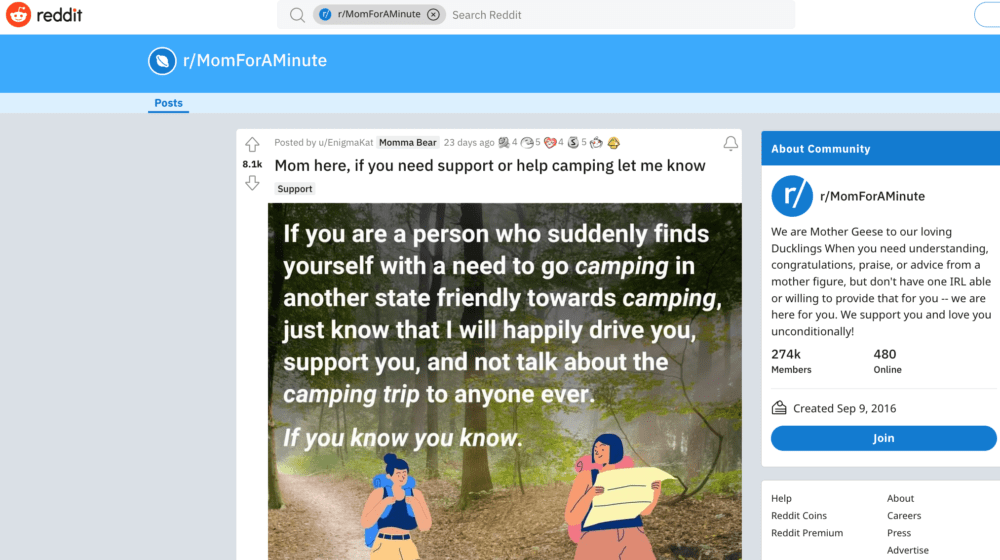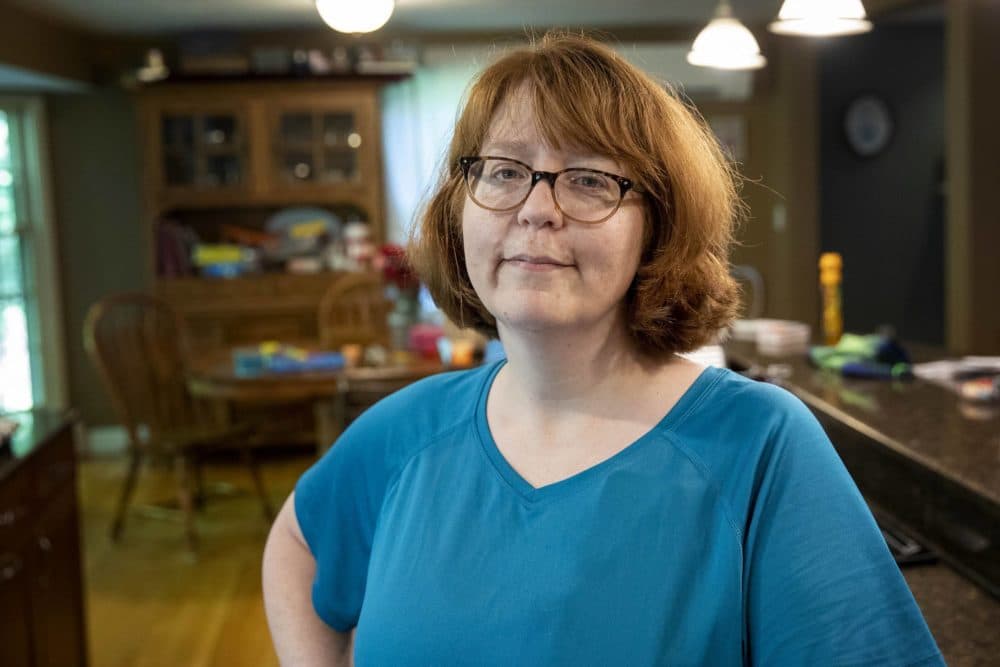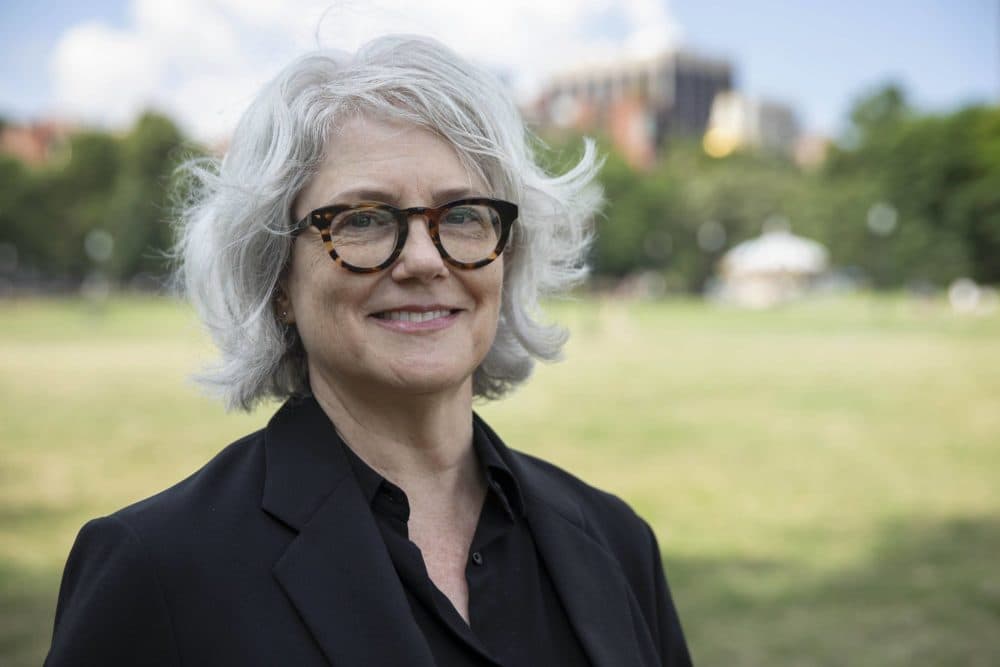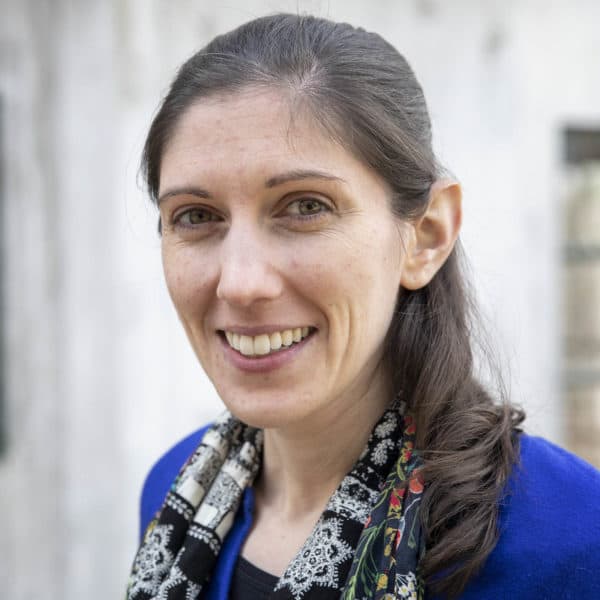Advertisement
Advocates urge crowd funding, not couch surfing, to help people traveling for an abortion

In a comment on Reddit, Diane Rhyee appears to be an outdoor enthusiast. She pledges to welcome anyone camping near her home in the Worcester area and advises that, "Massachusetts is camper friendly."
But Rhyee isn’t actually reaching out to give campers support. Since the Supreme Court overturned Roe v. Wade, "camping" has quickly become a code word for traveling to have an abortion. Rhyee's messages are an offer of temporary housing and empathy to those seeking abortions.
“I would let people come stay with me. I would transport. I would feed them,” she said in a recent interview. “I would hug them if they wanted a hug.”
Experts predict that in the post-Roe world more people will travel across state lines to get an abortion. That's prompted some people — like Rhyee — in states that guarantee abortion access to open their homes to those from places where restrictions are taking effect.
But as these informal offers spring up on social media, so have stern warnings not to accept — or propose — such help. In some cases, the warnings are pitting abortion rights supporters against one another.
'My Way To Try And Make The World Better'
While abortion rights opponents say they would prefer to limit the ability of people from out of state to come to Massachusetts for abortion care, others who disagree see an opportunity to help safely bring people in need here. Rhyee said she made the offer to host with her 15- and 16-year-old children in mind.
“I have a lot of guilt for my daughters that I gave them a world that is worse than what I had,” said Rhyee. “So I think this is my way to try and make the world better for not just my daughters, but everybody's daughters.”

Rhyee said when she thinks about the new abortion landscape, she finds herself asking, “What would Jesus do?” And, for her, the answer is clear: “He would help.” So that’s what Rhyee is trying to do.
She’s far from the only one.
Michele Ross, of Jamaica Plain, posted a similar message of support on a Facebook group for her college alumni. She offered to pay for travel and health care for anyone who needed it, and provide lodging at her home. "I will hold your hand and listen," she wrote. The early responses were gratifying for her.
“People started jumping in saying, 'Me too. Me too,' ” Ross recalled.
The comments kept coming. She estimates there were hundreds. With each person raising their hand to offer housing and help, Ross was thinking of her own abortions at age 19, 22, 23 and 25.
She feels confident she made the right choices, she said, because the situation was abusive or could have become abusive. But she wishes her experiences had been different.
Advertisement
“I didn't go in with a good friend or a parent or a sister. I went by myself,” Ross said.
She doesn’t want others to have to face an abortion alone.

'Anti-Abortion Advocates Also Have Spare Bedrooms'
Kate Glynn, who co-chairs the board of directors for the Abortion Rights Fund of Western Massachusetts, appreciates the sentiment, but bristles at all the “camping” posts in the weeks since the court struck down the constitutional right to an abortion.
“In the movement, we're all very clear around how to best serve the people that we're trying to help and center their experience, not center ourselves," Glynn said. "If I'm offering a guest room, I'm offering that because it makes me feel good.”
Instead, she believes the focus should be on the people traveling for abortion care, who often would be better served by support from experienced staff and a hotel room where they can recover from a medical procedure.
“The stuff that we don't talk about a lot is that I don't want to be feeling those cramps on somebody else's toilet,” Glynn said. “I would like to be in a private space where I can bleed on the sheets if that needs to happen.”
Plus, she added, there’s no good way to vet private individuals and understand their motives.
“Anti-abortion advocates also have spare bedrooms and also have resources that they might feel like would be helpful to trying to change someone's mind,” she said. Accepting an offer of help from a stranger runs the risk of putting someone in a distressing — or worse, dangerous — situation.
For decades, abortion funds have helped people navigate the financial and practical hurdles of accessing procedures. Glynn urged anyone who wants to help to write a check to an organization with a track record, instead of offering a room.
“It is a moment that actually throwing money at the problem does actually do something,” she said.
'It Was Worth The Travel'
Nearly half of all people who seek abortion care in the U.S. live below the federal poverty level. Katrina Kimport, a professor at the University of California, San Francisco, who studies people who must travel for abortions, said this means many turn to abortion funds, but they don’t always cover the full cost.
“They talk about immense out-of-pocket spending,” she said. “I interviewed people who were borrowing from family and friends, who were taking out of their retirement accounts, who were applying for personal loans that have exorbitant interest rates.”
Despite these difficulties, Kimport's research suggests these trips — which entail at least three days away from home — can come with a silver lining.
“The emotional support, the non-judgment, the compassion they received in their destination state,” said Kimport. “For some, they even went so far as to say it was worth the travel.”
Kimport said very few people she's interviewed relied on complete strangers for a place to stay. Instead, they tended to go through established institutions or their own personal networks.
So far, neither Michele Ross nor Diane Rhyee have heard from a “camper” seeking their help. And, their online comments did generate pushback. Some people warned they could be risking their own safety by opening their homes, and they might become targets for anti-abortion advocates or legal action.
“It hurt when people started responding, ‘Don't do that, don't do that!’ ” Ross said.
Both she and Rhyee said they volunteered knowing there could be risks. And while the negative responses give them pause, their offers still stand.
This segment aired on July 18, 2022.
